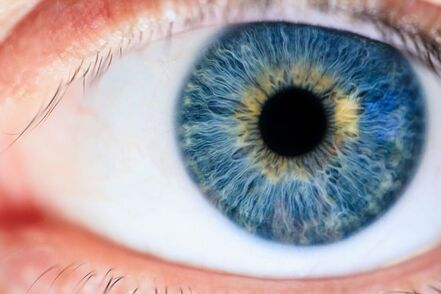Human beings are remarkably adaptable creatures. In fact, our ability to adapt to different climates and environmental circumstances has allowed homo sapiens to colonize virtually all of Planet Earth. Essentially, adaptability is our evolutionary advantage.
Both our perception of external stimuli and our behavior can become habitual. Our ability to interpret and react to the world consistently produces a habit. Stimulus produces response almost reflexively when a habit is formed and conscious thought of why a particular action was taken is often absent. Habits are often useful as they free up cognitive resources and allow "routine" actions to proceed automatically. No need to think about how to walk once you have developed the action and, at a higher cognitive level, bicycling or driving to work everyday ultimately proceeds on autopilot after you have been using the same route for a month. Because of this amazing capability of our minds, we can think about other issues and goals during our commute as the "automatic" processes of our brains take over to get us from home to work.
The unconscious nature of habits means that we are often unaware of why we make choices or take actions that have become habitual. We may not even be aware or able to resist engaging in actions that are objectively "bad" or harmful. A classic example is drug addiction. One hallmark aspect of being addicted to a drug of abuse is that use of the drug becomes habitual (automatic) and that addicted individuals continue their drug use despite negative consequences. This occurs because drug use has become habitual in a biological sense, often triggered by stimuli in the environment that prompt craving and use in a powerfully unconscious way. There is strong evidence that habit and "wanting" drives drug use more than "liking" in once a drug has become addictive.
Personally, I feel patience and taking the long-view is in short supply these days. The current climate leads many to think feedback or "results" should be instantaneous in all aspects of their lives. We expect response to rapidly follow action in the 21st Century but all aspects of life are not as quick to give us the feedback we want as clicking "buy now" on your smartphone. Overcoming these modern temptations is a challenge because of how easy it is for them to tap into habitual behaviors and our core needs of resource acquisition, human acknowledgement, belonging, and more. Fortunately, however, we have the ability to consciously frame our experience of the world in positive, constructive ways and take steps to behave accordingly.
In addition, many events or outcomes we experience are not objectively ALL negative or positive. Rather, there is a perspective that can often be taken that sees the positive in mostly negative events or the negative in mostly positive ones.
I believe some human beings are wired to be more drawn to the positive or negative aspects of an experience...seeing the flaws in nearly all things or viewing the world through rose-colored glasses. Indeed data show individual differences in the experience of stimuli as positive or negative which may have a biological basis (see also). Through conscious decisions and processes, however, we can regulate our innate biological tendencies to focus on the negative or positive.
When you receive an email with a comment or request you project onto it your own belief about what the person intended to communicate. It is critical, then, to try to "read" the message from multiple perspectives and not assume that it was written with either ill intent or effusive praise.
We could all do better by developing a growth mindset and internal locus of control as we navigate a complex world.
I choose to carefully reframe my perceptions of interactions before responding. To take a measured approach and understand the other party's position and viewpoint. While this takes time and effort, changing our default perceptions and habits can lead us to a more productive relationship with others and the world.
- Wanting, Liking, and Dopamine's Role in Addiction
- Stress and the Brain: How Genetics Affects Whether You are More Likely to Wilt Under Pressure
- To Be Rather Than to Seem
Further Reading:
- Brain health consequences of digital technology use
- The impact of the digital revolution on human brain and behavior: Where do we stand?
- Where do desires come from? Positivity offset and negativity bias predict implicit attitude toward temptations
- Your powerful, changeable mindset
- Negativity bias, negativity dominance, and contagion (PDF)
- The psychological and neurobiological bases of dispositional negativity (PDF)
- Propensity to reappraise promotes resilience to stress-induced negativity bias (PDF)
- Mindset: The New Psychology of Success (book)
- The Impulse Society: America in the Age of Instant Gratification (book)
- Positive Emotions and Psychophysiology Lab at UNC Chapel Hill (led by Barbara Fredrickson, who developed the Broaden-and-Build Theory of Positive Emotions)
- Stanford Mind & Body Lab, which has led interesting studies on how mindset affects one's biology including:



 RSS Feed
RSS Feed